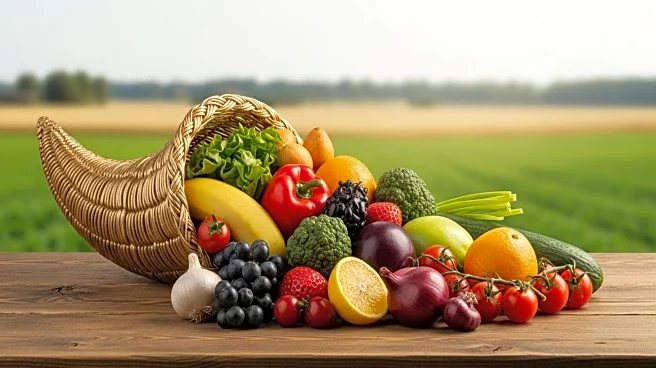What is the story about?
What's Happening?
South Africa's agribusiness sector is under pressure due to a 30% U.S. tariff on exports like citrus, wine, and macadamia nuts, threatening 35,000 jobs. Despite a surge in exports to the U.S., the long-term competitiveness of these industries is at risk. In response, South Africa is diversifying its markets, focusing on BRICS nations and the Gulf, and investing $13 billion in port and logistics upgrades. The country is also embracing digital transformation, with significant investments in precision farming and AgriTech to enhance productivity and sustainability.
Why It's Important?
The U.S. tariffs highlight the vulnerabilities of South Africa's export-dependent agribusiness, prompting a strategic shift towards market diversification and technological innovation. By targeting new markets and adopting digital agriculture technologies, South Africa aims to mitigate trade risks and enhance its global competitiveness. This transformation could lead to increased crop yields, water savings, and job creation, positioning South Africa as a leader in sustainable agriculture. The move also reflects a broader trend of countries seeking to reduce reliance on traditional Western markets.
What's Next?
South Africa's focus on diversification and digital transformation is expected to create new opportunities for growth and investment in the agribusiness sector. The country's efforts to meet Asian quality standards and expand into new markets could strengthen its position in the global agricultural trade. As South Africa continues to innovate and adapt, it may serve as a model for other countries facing similar trade challenges. The success of these initiatives will depend on the ability to navigate geopolitical tensions and leverage technological advancements effectively.
















